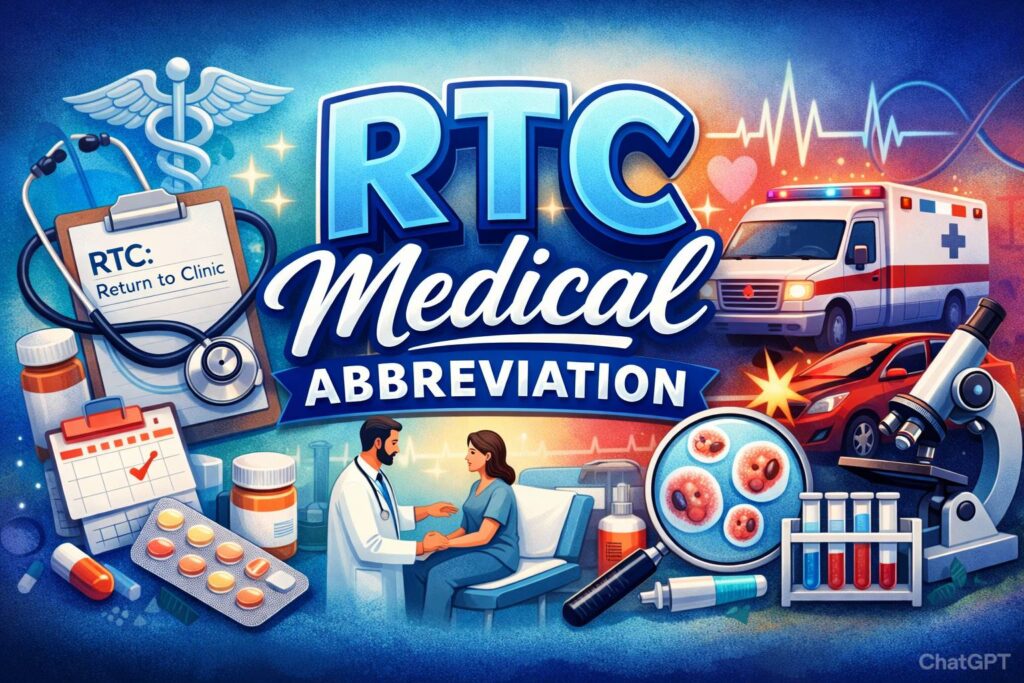Illinois Asbestos Legal Question: All Information You Require

Navigating the complexities of asbestos-related issues can be daunting, particularly when faced with an Illinois asbestos legal question. Asbestos, a hazardous material once commonly used in construction and manufacturing, poses significant health risks, including lung cancer and mesothelioma.
In Illinois, where industrial activities and older buildings have left a legacy of asbestos exposure, understanding your legal rights and options is crucial. Whether you’re dealing with a potential case of exposure, seeking compensation for health issues, or trying to understand the regulatory landscape, addressing an Illinois asbestos legal question requires specialized knowledge. This introduction aims to shed light on the legal avenues available to individuals affected by asbestos and guide you through the critical aspects of pursuing justice and securing your rights in the state of Illinois.
What are Illinois Asbestos Legal Questions
Illinois Asbestos Legal Question requires understanding the complex legal issues surrounding asbestos exposure and the ensuing health effects. The following frequently asked questions concerning the Illinois Asbestos lawsuit and the responses to them:
What are the common asbestos-related legal issues in Illinois?
In Illinois, common asbestos-related legal issues include claims for asbestos-related diseases such as mesothelioma and lung cancer, compensation for medical expenses, and lawsuits against manufacturers or property owners responsible for asbestos exposure. Additionally, there are legal questions regarding the statute of limitations, the burden of proof, and the proper channels for filing a claim.
How long do I have to file an asbestos claim in Illinois?
In Illinois, the statute of limitations for filing an asbestos claim varies depending on the type of claim. For personal injury claims, you generally have two years from the date of diagnosis to file a lawsuit. For wrongful death claims, the time limit is generally two years from the date of death. It’s important to consult with a legal professional to ensure you file within the appropriate timeframe.
What evidence is needed to support an asbestos claim in Illinois?
To support an asbestos claim in Illinois, you typically need evidence such as medical records confirming an asbestos-related disease, documentation of asbestos exposure (such as employment records or building history), and expert testimony linking the exposure to the illness. Gathering comprehensive evidence is crucial for a successful legal outcome.
Can I file an asbestos claim if I worked for multiple employers in Illinois?
Yes, you can file an asbestos claim even if you worked for multiple employers. In such cases, you may need to identify which employers were responsible for your asbestos exposure and establish a direct link between their negligence and your illness. An experienced asbestos attorney can help navigate these complex claims.
What types of compensation can I receive from an asbestos lawsuit in Illinois?
Compensation from an asbestos lawsuit in Illinois may cover various damages, including medical expenses, lost wages, pain and suffering, and punitive damages if applicable. In cases of wrongful death, compensation may also include funeral expenses and loss of consortium. The specific types and amounts of compensation depend on the details of your case.
Are there any asbestos trusts or funds available in Illinois for compensation?
Yes, many companies that were involved in asbestos production or use have established bankruptcy trusts to compensate victims. These trusts provide financial assistance to individuals with asbestos-related diseases. An attorney specializing in asbestos litigation can help determine your eligibility for trust funds and assist with the claims process.
How do I choose the right attorney for an asbestos case in Illinois?
When selecting an attorney for an asbestos case in Illinois, look for a lawyer with experience specifically in asbestos litigation, a successful track record in similar cases, and a deep understanding of Illinois asbestos laws. Initial consultations can help you assess their expertise and determine if they are the right fit for your case.
What should I do if I suspect I have been exposed to asbestos?
If you suspect asbestos exposure, it is important to seek medical evaluation as soon as possible to diagnose any related health conditions. Additionally, consult with an experienced asbestos attorney to discuss your legal options and potential claims. Prompt action can help protect your rights and improve your chances of receiving appropriate compensation.
Asbestos and Its Legal Implications in Illinois
Asbestos, once widely used in construction and industrial applications, has significant legal implications in Illinois due to its well-documented health hazards. In the past, asbestos was prized for its fire-resistant properties and durability, leading to its incorporation into a variety of products, including insulation, roofing materials, and automotive parts.
However, it became evident that asbestos fibers, when disturbed, could become airborne and inhaled, leading to severe respiratory illnesses. The legal implications in Illinois are multifaceted, involving both state and federal regulations aimed at protecting public health. Illinois has been a focal point for asbestos litigation, with numerous lawsuits filed against companies responsible for exposing workers and the public to asbestos.
These legal actions typically involve claims for personal injury or wrongful death, with plaintiffs seeking compensation for medical expenses, lost wages, and suffering. Additionally, property owners and employers in Illinois have legal obligations to manage and mitigate asbestos risks, including proper removal and disposal practices. Failure to comply with these regulations can result in significant legal consequences, including fines and liability for asbestos-related illnesses.
Overview of Asbestos-Related Diseases and Health Risks
Asbestos exposure is linked to a range of serious health conditions, primarily affecting the respiratory system. The most well-known asbestos-related disease is mesothelioma, a rare and aggressive form of cancer that develops in the lining of the lungs, abdomen, or heart. Mesothelioma has a long latency period, often taking decades to manifest symptoms, which complicates early diagnosis and treatment.
Another significant health risk is asbestosis, a chronic lung disease caused by the inhalation of asbestos fibers, leading to scarring of lung tissue and severe respiratory issues. Asbestosis can progress over time, resulting in reduced lung function and increased vulnerability to lung infections. Additionally, asbestos exposure is associated with a heightened risk of lung cancer, particularly among smokers. Less commonly, asbestos can cause cancers of the larynx, ovaries, and gastrointestinal tract.
The health risks posed by asbestos are particularly concerning because even low levels of exposure can have long-term consequences. Workers in industries such as construction, shipbuilding, and automotive repair are at higher risk, but secondary exposure can also occur when fibers are brought home on clothing or equipment. This wide range of health risks underscores the importance of stringent asbestos regulations and the need for awareness and early intervention in Illinois.
Illinois Asbestos Laws: Key Regulations and Statutes
Illinois has implemented a comprehensive legal framework to address the dangers of asbestos exposure, with key regulations and statutes designed to protect public health and ensure accountability. The Illinois Environmental Protection Agency (IEPA) and the Illinois Department of Public Health (IDPH) are the primary regulatory bodies overseeing asbestos management in the state. One of the cornerstone regulations is the Illinois Asbestos Abatement Act, which sets strict guidelines for the removal and disposal of asbestos-containing materials (ACMs).
This act mandates that only licensed professionals conduct asbestos abatement to prevent improper handling and minimize the risk of exposure. Additionally, Illinois law requires public and commercial buildings to undergo asbestos inspections before any renovation or demolition work, ensuring that ACMs are identified and safely managed. Another critical statute is the Illinois Tort Law, under which individuals harmed by asbestos exposure can file lawsuits against companies responsible for their injuries.
These lawsuits often involve claims of negligence, product liability, and failure to warn about the dangers of asbestos. Illinois also adheres to federal regulations, such as the Clean Air Act and the Occupational Safety and Health Administration (OSHA) standards, further strengthening its asbestos-related legal framework. These laws and regulations reflect Illinois’ commitment to mitigating the health risks associated with asbestos and providing legal avenues for victims seeking justice.
Identifying Asbestos Exposure in Illinois: Common Sources and Locations
Asbestos exposure in Illinois can occur in various settings, particularly in older buildings and industrial sites where asbestos-containing materials (ACMs) are commonly used. One of the most prevalent sources of asbestos in Illinois is construction materials in homes, schools, and commercial buildings constructed before the 1980s. These materials include insulation, roofing shingles, floor tiles, and cement products, which, when disturbed, can release hazardous asbestos fibers into the air.
Industrial sites, such as power plants, factories, and chemical plants, are also significant sources of asbestos exposure, particularly for workers who handle materials like pipe insulation, gaskets, and brake linings. Shipyards in Illinois, especially along Lake Michigan, have historically been hotspots for asbestos exposure due to the extensive use of asbestos in shipbuilding and repair. Additionally, natural asbestos deposits, though less common, can be found in certain areas of the state, posing a risk to nearby communities through soil disruption and airborne fibers.
Asbestos exposure can also occur in automotive repair shops where mechanics might encounter asbestos in older brake pads and clutches. Identifying these common sources and locations is crucial for preventing exposure, especially during renovation, demolition, or repair activities. Public awareness campaigns and professional inspections play vital roles in safeguarding Illinois residents from the hidden dangers of asbestos.
Illinois Statute of Limitations for Asbestos-Related Claims
In Illinois, the statute of limitations for filing asbestos-related claims is a critical legal aspect that potential plaintiffs must understand. The statute of limitations refers to the time frame within which an individual can file a lawsuit after discovering they have been harmed by asbestos exposure. Illinois law typically provides two years from the date of diagnosis of an asbestos-related disease, such as mesothelioma or lung cancer, to file a personal injury claim.
This two-year period also applies to wrongful death claims, starting from the date of the victim’s death due to an asbestos-related condition. However, due to the long latency period of asbestos-related diseases, the statute of limitations can be complex. Illinois courts recognize that victims may not immediately connect their health issues to asbestos exposure, so the “discovery rule” is often applied.
This rule allows the statute of limitations to begin when the victim knew or should have known that their disease was related to asbestos exposure. It is crucial for individuals and families affected by asbestos in Illinois to seek legal advice promptly to ensure their claims are filed within the appropriate time limits. Missing the statute of limitations can result in the loss of the right to seek compensation, highlighting the importance of timely legal action in asbestos cases.
Filing an Asbestos Lawsuit in Illinois: Step-by-Step Process
Filing an asbestos lawsuit in Illinois involves several crucial steps, each designed to build a strong case for compensation. The process begins with consulting an experienced asbestos attorney who can assess the viability of the claim and guide the plaintiff through the legal procedures. The initial step is to gather evidence, including medical records documenting the asbestos-related illness and proof of exposure.
Next, the attorney will conduct a thorough investigation to identify the responsible parties, which may include manufacturers, employers, or property owners. Once the evidence is compiled, the attorney will file a formal complaint in the appropriate court. This complaint outlines the allegations, damages sought, and the legal basis for the claim. Following the filing, the defendant(s) will have the opportunity to respond, leading to a discovery phase where both parties exchange information.
Settlement negotiations may occur, but if an agreement is not reached, the case proceeds to trial. Throughout this process, the attorney will represent the plaintiff’s interests, aiming to secure fair compensation for medical expenses, lost wages, and pain and suffering. Each step requires meticulous attention to detail and adherence to legal deadlines, underscoring the importance of professional legal guidance in asbestos litigation.
Workers’ Compensation and Asbestos Exposure in Illinois
In Illinois, workers’ compensation provides a critical safety net for employees who develop asbestos-related diseases due to workplace exposure. Asbestos-related illnesses, such as asbestosis, lung cancer, and mesothelioma, are recognized as occupational diseases under Illinois workers’ compensation law. To qualify for benefits, an employee must demonstrate that their illness was caused by exposure to asbestos in the workplace and that the exposure occurred during their employment.
The process begins with the worker filing a claim with the Illinois Workers’ Compensation Commission (IWCC), providing medical evidence and documentation of the exposure. If the claim is approved, benefits can include medical expenses, lost wages, and disability payments. However, navigating workers’ compensation claims can be complex, as the process involves detailed medical evaluations and proof of the link between the disease and asbestos exposure.
In some cases, disputes may arise regarding the extent of the illness or the responsible parties, potentially requiring legal representation to resolve. Workers’ compensation offers vital support for those affected by asbestos, but understanding the specific requirements and procedures is essential for securing the necessary compensation and benefits.
Illinois Asbestos Trust Funds: Eligibility and Claim Process
Illinois asbestos trust funds provide a crucial avenue for compensation for individuals harmed by asbestos exposure, particularly when direct litigation against responsible parties is no longer feasible. These trust funds are established by companies that have declared bankruptcy due to asbestos-related claims, creating financial resources to compensate victims.
To access these funds, claimants must first establish their eligibility, which typically involves proving a diagnosis of an asbestos-related disease and demonstrating a history of exposure to products manufactured by the bankrupt company. The claim process begins by filing a claim with the appropriate trust fund, which requires submitting medical records, exposure histories, and other relevant documentation.
Each trust fund has its own specific procedures and criteria for evaluating claims, so it’s important to carefully review and follow these guidelines. The review process can be rigorous, involving assessments by medical and legal experts to verify the claim’s validity. If approved, the trust fund will provide compensation based on the severity of the illness and the extent of exposure.
Role of Environmental Agencies in Illinois Asbestos Regulations
Environmental agencies in Illinois play a critical role in managing and regulating asbestos to protect public health and the environment. The Illinois Environmental Protection Agency (IEPA) is primarily responsible for overseeing the handling, removal, and disposal of asbestos-containing materials (ACMs) to ensure compliance with state and federal regulations.
The IEPA enforces the Asbestos Abatement Act, which mandates that only licensed professionals conduct asbestos removal and remediation activities. Additionally, the Illinois Department of Public Health (IDPH) provides guidance on asbestos management and health risk assessments. Both agencies collaborate to enforce standards for asbestos inspections, particularly before renovation or demolition projects, to prevent the release of asbestos fibers into the air.
They also monitor compliance with regulations and investigate potential violations, which can result in fines and penalties for non-compliance. Public education and outreach are also key aspects of their roles, helping to raise awareness about asbestos risks and safe practices for managing and removing asbestos.
Legal Representation: How to Choose an Asbestos Lawyer in Illinois
Choosing the right asbestos lawyer in Illinois is crucial for navigating the complexities of asbestos-related litigation and securing fair compensation. Start by seeking attorneys who specialize in asbestos cases and have a proven track record of success in similar claims.
Look for lawyers with extensive experience in handling asbestos-related lawsuits, as they will be familiar with the intricacies of asbestos law and the specific challenges associated with these cases. Additionally, review client testimonials and case outcomes to gauge their reputation and effectiveness. A good asbestos lawyer should offer a clear strategy for your case, provide transparent communication, and be able to explain the legal process in understandable terms.
Many asbestos lawyers work on a contingency fee basis, meaning they only get paid if you win your case, which aligns their interests with achieving the best possible outcome for you. Personal comfort and trust are also important factors; ensure you feel confident and supported by the attorney throughout the legal process.
Recent Illinois Asbestos Litigation Cases: Key Precedents and Outcomes
Recent asbestos litigation cases in Illinois have set significant precedents and shaped the landscape of asbestos-related legal claims. One notable case involved a landmark verdict where a jury awarded substantial damages to a plaintiff suffering from mesothelioma, highlighting the courts’ willingness to hold companies accountable for asbestos exposure even decades after the exposure occurred.
In another prominent case, the Illinois Supreme Court addressed the issue of “primary” versus “secondary” exposure, clarifying the legal standards for proving causation in asbestos claims. Additionally, recent litigation has seen an increase in cases involving the liability of asbestos manufacturers and property owners who failed to properly manage or disclose the presence of asbestos.
Outcomes in these cases often involve significant financial settlements or verdicts, reflecting the serious nature of asbestos-related diseases and the legal system’s commitment to providing justice for affected individuals. Keeping abreast of these recent precedents and outcomes can provide valuable insights into the evolving dynamics of asbestos litigation in Illinois, guiding future legal strategies and expectations for victims seeking compensation.
Conclusion
In conclusion, navigating an Illinois asbestos legal question involves understanding a complex interplay of state and federal regulations, medical implications, and legal procedures. Asbestos exposure has led to significant health risks, prompting stringent legal frameworks to address and manage these dangers. Whether dealing with filing a lawsuit, seeking workers’ compensation, or pursuing claims through asbestos trust funds, each step requires careful attention to detail and adherence to legal standards.
Environmental agencies play a crucial role in regulating asbestos management and choosing the right legal representation can make a significant difference in the outcome of a case. Recent litigation cases continue to shape the legal landscape, offering valuable precedents for future claims. Addressing an Illinois asbestos legal question effectively requires not only a thorough understanding of these elements but also professional guidance to ensure that rights are protected and justice is served.



























































































































































































































































































































































































































































































































































































































